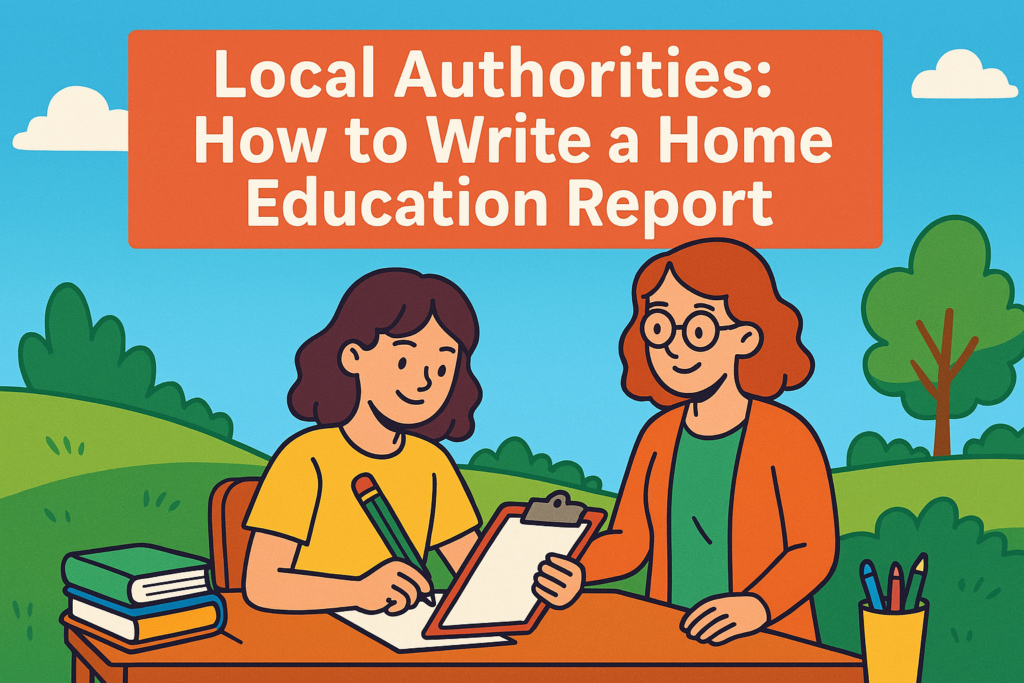How to Respond to a Local Authority Request for a Home Education Report
When you choose to home educate, you take full responsibility for your child’s learning. According to Section 7 of the Education Act 1996, you must provide a full-time education suitable to your child’s age, ability, aptitude, and any special educational needs (SEN) they may have. This applies to all families who home educate, regardless of your method.
Local authorities (LAs) are responsible for making sure children receive a suitable education. However, they are not there to control your choices, approve your curriculum, or inspect your home unless there is good reason. They may contact you if they become aware that you are home educating or if they have concerns.

Understanding Local Authority Home Education Reports
When you decide to home educate, you take full responsibility for your child’s education. Under Section 7 of the Education Act 1996, you must provide an education suitable for your child’s age, ability, aptitude, and any special educational needs (SEN) they may have. This is a legal duty that applies to all home-educating families, regardless of the approach you take.
Local authorities (LAs) are responsible for ensuring that children in their area are receiving a suitable education. However, they are not there to approve, supervise, or regulate your educational choices. Instead, they may make enquiries if they have concerns or if they become aware that you are home educating.
Why Local Authorities Request a Home Education Report
It is common for the LA to contact parents and request information about their child’s home education. In most cases, they will ask for a written report or evidence of the education being provided. Although you are not legally required to write a formal report, you must satisfy the LA that you are meeting your legal obligation. In practice, supplying clear and honest information is usually the best way to resolve the matter quickly and avoid further enquiries.
Importantly, you are not required to:
- Follow the National Curriculum.
- Imitate a school timetable.
- Allow home visits or meetings unless you choose to do so.
For additional guidance, you may wish to visit the official Elective Home Education guidance published by the Department for Education.
What is a ‘Suitable’ Home Education?
A suitable education should:
- Match your child’s age, ability, and aptitude.
- Address and meet any special educational needs they may have.
- Prepare your child for adult life and future opportunities, considering their circumstances.
For example:
- Young children may learn through play, exploration, and informal activities.
- Older children may work towards qualifications such as GCSEs or other recognised pathways.
- Children with SEN might benefit from tailored methods, such as multi-sensory learning or assistive technology.
Ultimately, the goal is to help your child make steady progress in their learning over time.
What Does ‘Full-Time’ Mean in Home Education?
Unlike schools, home education is not measured by set hours or a fixed timetable. However, it should form a regular and significant part of your child’s routine. Many families aim for the equivalent of a typical school week, though they often adapt learning to suit their child’s needs. For example, you might include:
- Evening learning sessions.
- Weekend-based activities and projects.
- Year-round learning with flexible breaks.
Although you are not legally required to maintain a formal timetable, the LA may ask for evidence that education happens consistently and regularly.
What Should Your Home Education Report Include?
Your home education report should clearly demonstrate that:
- Your child is receiving a full-time education.
- The education is suitable for your child’s age, ability, aptitude, and any special needs.
- Your child is making progress.
You may wish to include:
- Your child’s name, age, and a summary of your educational approach.
- The subjects and learning areas you cover (English, Maths, Science, Art, and others).
- The methods you use (structured lessons, project-based learning, or a blended approach).
- How you meet your child’s specific needs, including SEN if applicable.
- Examples of learning activities, outings, projects, or creative work.
- Evidence of progress such as work samples, new skills, or observations.
Final Advice
Responding to a local authority home education report request may feel daunting. However, it is important to remember that you are not required to deliver perfect education, nor do you have to mirror school practices. Instead, you must show that you are providing an education suited to your child’s needs and that they are making reasonable progress.
A thoughtful, well-organised report will usually satisfy the LA and help maintain your freedom to educate your child at home in the way that works best for your family. It’s important to be aware that if local authorities have ongoing concerns about the suitability of education being provided, they have the power to issue a School Attendance Order (SAO).
This is a legal notice requiring you to register your child at a specified school. Taking the time to provide clear evidence of your child’s education can help prevent escalation to this stage and protect your right to continue home educating.
